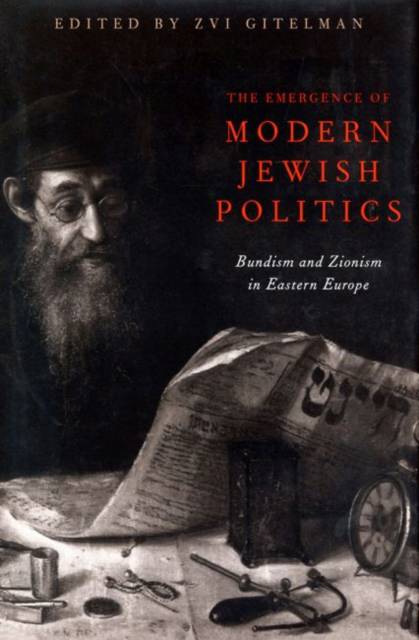
- Afhalen na 1 uur in een winkel met voorraad
- Gratis thuislevering in België vanaf € 30
- Ruim aanbod met 7 miljoen producten
- Afhalen na 1 uur in een winkel met voorraad
- Gratis thuislevering in België vanaf € 30
- Ruim aanbod met 7 miljoen producten
Zoeken
€ 83,95
+ 167 punten
Omschrijving
The Emergence of Modern Jewish Politics examines the political, social, and cultural dimensions of Zionism and Bundism, the two major political movements among East European Jews during the first half of the twentieth century. While Zionism achieved its primary aim--the founding of a Jewish state--the Jewish Labor Bund has not only practically disappeared, but its ideals of socialism and secular Jewishness based in the diaspora seem to have failed. Yet, as Zvi Gitelman and the various contributors argue, it was the Bund that more profoundly changed the structure of Jewish society, politics, and culture. In thirteen essays, prominent historians, political scientists, and professors of literature discuss the cultural and political contexts of these movements, their impact on Jewish life, and the reasons for the Bund's demise, and they question whether ethnic minorities are best served by highly ideological or solidly pragmatic movements.
Specificaties
Betrokkenen
- Auteur(s):
- Uitgeverij:
Inhoud
- Aantal bladzijden:
- 288
- Taal:
- Engels
- Reeks:
- Reeksnummer:
- nr. 233
Eigenschappen
- Productcode (EAN):
- 9780822963240
- Verschijningsdatum:
- 4/11/2014
- Uitvoering:
- Paperback
- Formaat:
- Trade paperback (VS)
- Afmetingen:
- 169 mm x 231 mm
- Gewicht:
- 444 g

Alleen bij Standaard Boekhandel
+ 167 punten op je klantenkaart van Standaard Boekhandel
Beoordelingen
We publiceren alleen reviews die voldoen aan de voorwaarden voor reviews. Bekijk onze voorwaarden voor reviews.











